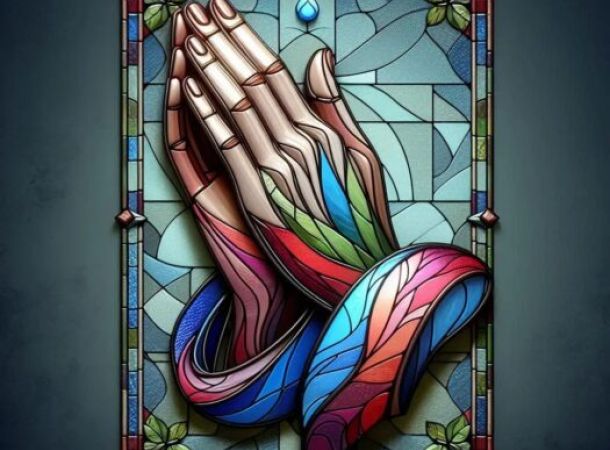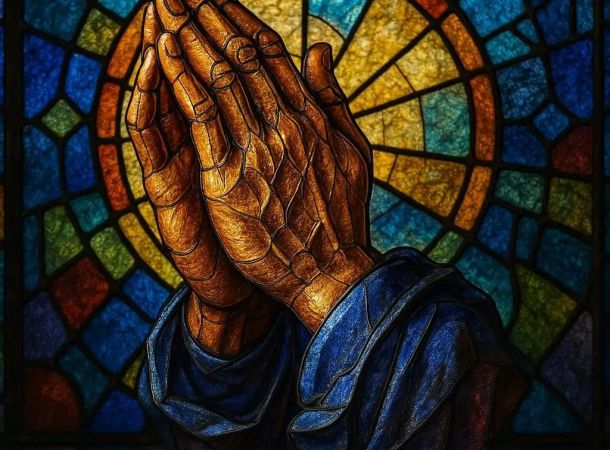An Infected One
A few portions ago, I posed a rhetorical question about whether there was an enemy as detrimental as idolatry. The answer is yes, and we will learn about that enemy in the next Torah Portion in review. Leviticus 12:1-15:33 explores the concept of uncleanliness in the portion labeled Tazria-Metzora, or “Bearing a Seed-Leper.” My Jewish Learning labels this portion as “She bears seed-Infected one.” This portion is one of the most important narratives in the Bible as it speaks about unclean humans and how Yeshua cleanses us.
Biblical leprosy connects to lashon hara, a Hebrew term that consolidates weaponizing our tongue or evil speech. Lashon hara includes lying, gossip, slander, blasphemy, and even complaining (in my opinion). What Greek word most aligns with this term? Devil. A devil is often translated as a person prone to slander, who falsely accuses, or is a calumniator. Leprosy is not referring to the physical ailment we have today, but rather a spiritual ailment of crookedness. When God initially breathed His Spirit into humanity, He made us truthful, as one of the names of that Divine Breath is the “Spirit of Truth (Jn 14.17 & Ps 31.5).” Therefore, when we twist, manipulate, add to, or detract from truth, we break that spirit inside us and others. Somehow, the Israelites had a physical manifestation of an inner sickness, as we see it played out in Numbers 12 when Miriam uses her tongue against Moses, and God strikes her down with leprosy.
Proverbs 15:4: A wholesome tongue is a tree of life, but perverseness in it breaks the spirit.
Numbers 12:1 & 10: Then Miriam and Aaron spoke against Moses because of the Ethiopian woman whom he had married; for he had married an Ethiopian woman…And when the cloud departed from above the tabernacle, suddenly Miriam became leprous, as white as snow. Then Aaron turned toward Miriam, and there she was, a leper.
What does it all mean? It means that as creatures made in the image of the Holy One with the Spirit of Truth, using our tongue to cause harm or plant seeds of doubt in others constitutes the greatest uncleanliness. It is a manifestation of an unclean heart. The heart is where our words stem from. The heart is the holy of holies or the seat of the Divine Presence, and that Presence cannot dwell in an unclean space.
Proverbs 4:23: Keep your heart with all diligence, for out of it spring the issues of life.
Matthew 12:34: You brood of vipers! How can you, who are evil, say anything good? For from the overflow of the heart the mouth speaks. (Serpents and vipers are connected to the wicked who speak crooked things.)
Psalm 140:1-3: Deliver me, O Lord, from evil men; Preserve me from violent men, who plan evil things in their hearts; They continually gather together for war. They sharpen their tongues like a serpent; The poison of asps is under their lips. Selah
Deceit, complaining, blaspheming, gossiping, and slander are all ways we cause brokenness in the worldwide. Words that bring life come from six branches on the Tree of Life, according to Isaiah 11:2. The six branches of the Spirit of Truth are wisdom, understanding, counsel, power, knowledge, and the fear of God. These branches produce fruit that gives life, including love, joy, peace, patience, kindness, goodness, faithfulness, gentleness, and self-control. On the other side, we have the six branches of the Tree of Knowledge of Good and Evil found in Proverbs 6:16-19: a proud eye, a lying tongue, hands that shed innocent blood (slander), feet quick to do evil, a false witness (false accuser), and one who causes division (calumniator). Notice that I removed the middle definer, a heart that devises mischief, because it is the antithesis of a pure and honest heart. These six branches stem from the Spirit of Error and produce the following fruit that brings forth death to one’s spirit, relationships, others’ spirits, and hopes.
Galatians 5:19-21: Now the deeds of the flesh are clear: sexual immorality, impurity, indecency, idolatry, witchcraft, hostility, strife, jealousy, rage, selfish ambition, dissension, factions, envy, drunkenness, carousing, and things like these.
1 John 4:6: We are from God; whoever knows God listens to us, but whoever is not from God does not listen to us. By this, we know the Spirit of truth and the spirit of error (deceit, fraud, delusion, wandering from the right path, mental straying).
Proverbs 18:21: Death and life are in the power of the tongue, and those who love it will eat its fruit. (Notice how the tongue produces fruit.)
This Torah Portion repeats the anointing that Moses gave to the Priesthood in Exodus. Moses anointed the right ear, the right thumb, and the right big toe with the blood of the sacrifice. In Leviticus, there is another anointing, but this time, it is on the leper or the unclean human. The right side is the strong side in the Ancient Near Eastern worldview. The right ear is strengthened to shema or hear the voice of the Holy One. The right thumb is to strengthen your good works. The right big toe is necessary to walk the path of righteousness or right choices. These are the three parts of your body that guide you. The Priest anointed the unclean person so they could hear good instruction, do it, and walk in it. In the present Torah Portion, the Priest is the one who declares a person clean or unclean. Three things can contract leprosy: a person, clothing, and a house. It was a truly challenging job that could only be accomplished with compassion for both the community and the leper. What were the lepers who approached Yeshua actually saying? They were calling Him a Priest. They said you have the authority to pronounce me clean, and therefore, You can restore me to spiritual health and wholeness.
The Labavitcher Rebbe said, “There is nothing more hateful to G‑d than division between His children. The metzora (leper) must be ostracized because, through his slander and tale-bearing, he himself is a source of divisiveness; nevertheless, the Torah is loath to separate him from the community. So, it is not enough that the technical experts say he is marked by tzara’at (leprosy). It is only when the Kohen (Priest)—whose very being shudders at the thought of banishing a member of the community—is convinced that there is no escaping a verdict of tzara’at that the metzora is separated from his people. And it is only when the one doing the banishing is suffused with loving concern for the banished person that the penalty will yield a positive result—the repentance and rehabilitation of the metzora.There is another lesson here as well: it is not the fact of the tzara’at that renders the metzora impure, but the Kohen’s declaration of his impurity. In other words, no matter how terrible a person’s state may be, to speak ill of him is more terrible still. The Kohen’s saying that he is impure affects his spiritual state far more profoundly than the actual fact of his tzara’at! (link) The gospels write that Yeshua had compassion on the lepers and said, “I am willing” to make you clean.
Matthew 8:2-3: And a man with tzara’at came to Him and bowed down before Him, saying, “Master, if You are willing, You can make me clean.” Yeshua stretched out His hand and touched him, saying, “I am willing. Be cleansed.” Immediately, his tzara’at was cleansed.
Essentially, Yeshua is the High Priest whose love and compassion for the broken humans around Him led Him to share His cleanliness. His love cleanses our hearts of selfish ambition, jealousy, envy, pride, and competition so that we can be vessels of truth. Leprosy or evil speech affects our skin or our ability to be a light in a dark world because our skin initially radiated a primordial light due to the fullness of the Spirit of Truth. If we do not align with the truth, our skin is affected, and our light dims. The next thing affected is our clothing or coverings. If we take a tree to symbolize a human in the Bible, the fruit is equal to our clothing. We are supposed to look at and judge others’ fruit. There is the fruit of the lips- what we say, the fruit of our deeds- what we do, and the fruit of repentance- the fruit of accountability. The last thing affected by leprosy is a person’s house. If it reaches a level where scraping and a seven-day purification do not help, the Priest must tear it down and rebuild it. Isn’t that what Yeshua said He was going to do? Didn’t He say He would rebuild the torn-down Temple? He is rebuilding us as little human Mishkans or dwellings of His Spirit, and He is consistently cleansing us from manipulation, deceit, pride, and crookedness. We do not want to be devils or crooked serpents. Here are some verses applying the devil to human beings.
Luke 8:12: Those beside the road are the ones who have heard; then the devil comes and takes away the word from their heart, so that they may not believe and be saved.
Matthew 13:19 NKJV (another version of the above verse that can be used to define terms): When anyone hears the word of the kingdom and does not understand it, then the wicked (one) come and snatch away what was sown in his heart. (The one is in italics because it is not in the original text. The original text says, “the wicked” snatch the seed.)
John 6:70 NKJV: Jesus answered them, “Did I not choose you, the twelve, and one of you is a devil?”
1 Timothy 3:11: Women, likewise, must be dignified, not [devils]; clear-minded, trustworthy in every respect.
2 Timothy 3:2-4: For people will be lovers of self, lovers of money, boastful, arrogant, blasphemers, disobedient to parents, ungrateful, unholy, hardhearted, unforgiving, [devils], without self-control, brutal, hating what is good, treacherous, reckless, conceited, lovers of pleasure rather than lovers of God.
Titus 2:3: Likewise, older women are to be sanctified in demeanor, not [devils] or enslaved to much wine. Let them be teachers of what is good.
Essentially, the crooked serpent in the Garden could have been Adam planting doubt, questioning God’s instructions, and producing an infected seed inside Chavah or Eve. The prophecy in Genesis 3 is that the serpent’s seed (the wicked, according to Matthew 13:38) will bruise the heel, the part of our foot crucial for walking. The wicked or crooked humans affect our walk, but the Priest anoints the big toe in this Torah portion, the part of our foot responsible for directing us. The good seed that bruises the serpent’s head (authority/power) is the Word of God embodied in the person of Yeshua. The Rabbis noted that the word Torah is mentioned five times in this Torah Portion, further connecting the Word of God as the antidote for the uncleanliness of a human heart.
Psalm 119:9: How can a young man cleanse his way? By taking heed according to Your word.
Revelation 19:13 NKJV: He was clothed with a robe dipped in blood, and His name is called The Word of God.
Hebrews 2:14: Therefore, since the children share in flesh and blood, He Himself likewise shared the same humanity, so that through death He might break the power of the one who had the power of death (that is, the devil). (What is in parentheses is added to the original text.)
Yeshua had to become human, flesh and blood, so He could live authentically in the Spirit of Truth and defeat the effects of a lying spirit, also flesh and blood, since lying is a human trait, not a spiritual one, that causes a broken world.
Numbers 23:19: God is not a man, that He should lie, Nor a son of man, that He should repent. Has He said, and will He not do? Or has He spoken, and will He not make it good?
Thus, the Talmud (Sanhedrin 98b) describes Moshiach (Messiah) as a metzora (leper), signifying that the messianic age is a time in which evils that have infested the world and mankind rise to the surface so that they can be decisively overcome and cured. (The Lubavitcher Rebbe)
Rabbi Jonathan Saks said, “What an astonishing insight it was to see leprosy – that disfiguring disease – as a symbol and symptom of evil speech. For we truly are disfigured when we use words to condemn, not communicate; to close rather than open minds; when we use language as a weapon and wield it brutally. The message of Metzora remains. Linguistic violence is no less savage than physical violence, and those who afflict others are themselves afflicted—words wound. Insults injure. Evil speech destroys communities. Language is God’s Greatest gift to humankind, and it must be guarded if it is to heal, not harm.“ (link)




Leave a Reply